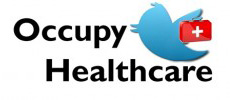In healthcare, sometimes we look for someone to blame. This is not uncommon.
Blame happens in all walks of life. The assignment of “fault” to another individual; the need to point a finger.
Whose fault is it that healthcare is not where it should be? Where healthcare could be?
Who makes the decisions in healthcare?
Who decides that there are to be such appalling racial and ethnic disparities in healthcare?
Who decides how much healthcare services will cost?
Who should ultimately be responsible for covering lives in healthcare? Is it the government?
People have argued for some time what the government’s role should be in healthcare? Is this who we blame?
In a fascinating article on personal responsibility and healthcare, two author’s discuss the fine line between what the patient needs to do for themselves and what the patient is asked to do by the provider:
“In its concern with developing and disseminating new diagnostic and therapeutic modalities — including more effective medications — the U.S. health care system often seems to focus more on treating the disease rather than the patient. The paradigm of personal responsibility for one’s health, which includes the responsibility of patients to follow their physician’s instructions and adhere to their treatment plan, now carries great weight among health care providers.”
And make no mistake, the healthcare system is very good and telling you what to do.
“We’ve often heard our colleagues say something like, ‘If we can just get our patients to do what we want them to do, they would be better off.’ But to them we say this: as you ask your patients to take personal responsibility for their health care, do the society and the health care system of which you are a part provide your patients with appropriate options?’”
This question takes us back to so many previous points we have made here on this website. Healthcare, as it is currently designed, is not built around the patient. As much as we would like to think that it is, the need to make a more seamlessly integrated patient-centered system remains aspirational.
Reenter certain psychosocial issues and social determinants of health. Continuing from the Betancourt and Quinlan article:
“For example, can diabetes patients in fact get the healthy foods we instruct them to eat? Are such foods available and affordable in their community? Can heart disease patients exercise safely in their community? Do they even have a sidewalk where they live? Even if asthma patients take their medications, can they rest assured that the mold and dust in their apartment, or the incinerator one block down, or the diesel bus that passes on their street 30 times a day will not make them acutely short of breath?”
If we are satisfied with what we have in healthcare, we should continue to do nothing. To flip the point above on personal responsibility on its head, we all have a personal responsibility to ensure that we have a healthcare system that can met our needs. We all have a personal responsibility for trying to help build something that works that will ultimately have a positive impact on our families and our community. Becoming involved and letting your voice be heard is not as difficult as one would imagine. We must move beyond blame and work towards action. After all, we all have a story.
While it may be hard to blame someone for all the problems in healthcare, does it even matter? Ultimately we are the ones responsible for making the change. We are the ones responsible for taking a stand for something better than what we have.
Blaming seems to be the weakest option we have.
So maybe it was Professor Plum after all.

